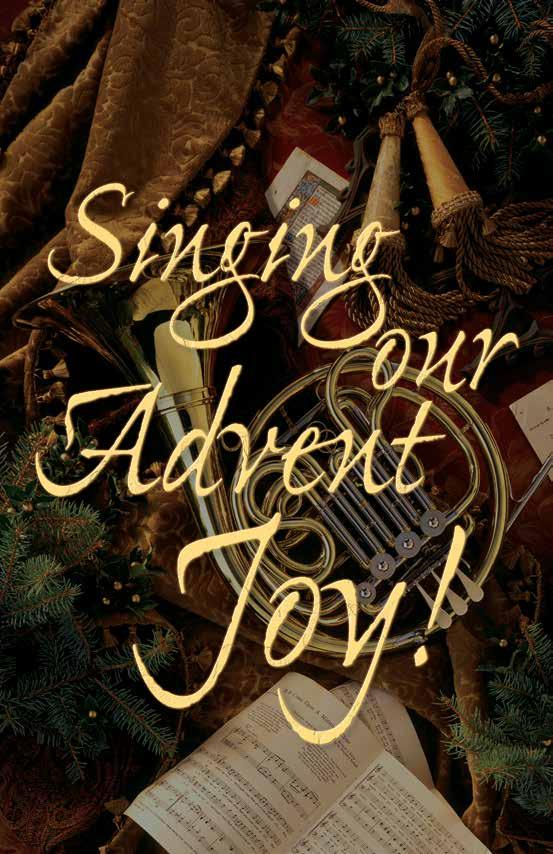
1 minute read
Christmas Day “Good Christian Friends, Rejoice”
Advent blooms, at last, into the season of Christmas, and this hymn expresses the joy of this day with such simplicity and exuberance. It invites us to dance as we sing it, and that is appropriate because the word “carol” once meant “to dance in a ring.” The British musician Percy Dearmer, who with Ralph Vaughn Williams and Martin Shaw is credited with the revival of traditional and medieval English musical forms, wrote the preface for the first edition (in 1928) of The Oxford Book of Carols. “Carols,” he said, “are songs with a religious impulse that are simple, hilarious, popular, and modern” (p.v). In fact, he asserts that carols, by moving away from earlier contemplative forms of church music, “began the era of modern music, which has throughout been based upon the dance.” We may be surprised by his suggestion that this carol is so contemporary, even revolutionary—its melody, after all, goes back to the fourteenth century— but when that melody is sped up to a tempo that invites us to tap our feet, there is indeed hilarity and it’s almost impossible not to dance.
After the year our world has had—the suffering and death at the hands of a brutal pandemic, the social isolation practiced across months by so many of us, the prayers uttered each night before sleep for safety and relief for all whom we know and love (and for all who suffer and whom we do not yet know and love—or even, perhaps, do not yet understand)—we may be more ready for this day than ever before. And, right on time, this charming, simple, toe-tapping carol captures and promotes our joy. In the face of bleakness still around us, the birth of Jesus Christ nonetheless summons our attention.
Advertisement
So gather your instruments (or maybe just your sound system) for the appropriate hilarity of Christmas Day! “Now ye need not fear the grave: Jesus Christ was born to save! Calls you one and calls you all to gain the everlasting hall. Christ was born to save! Christ was born to save!”
– Reverend Dr. Theodore J. Wardlaw, President and Professor of Homiletics


